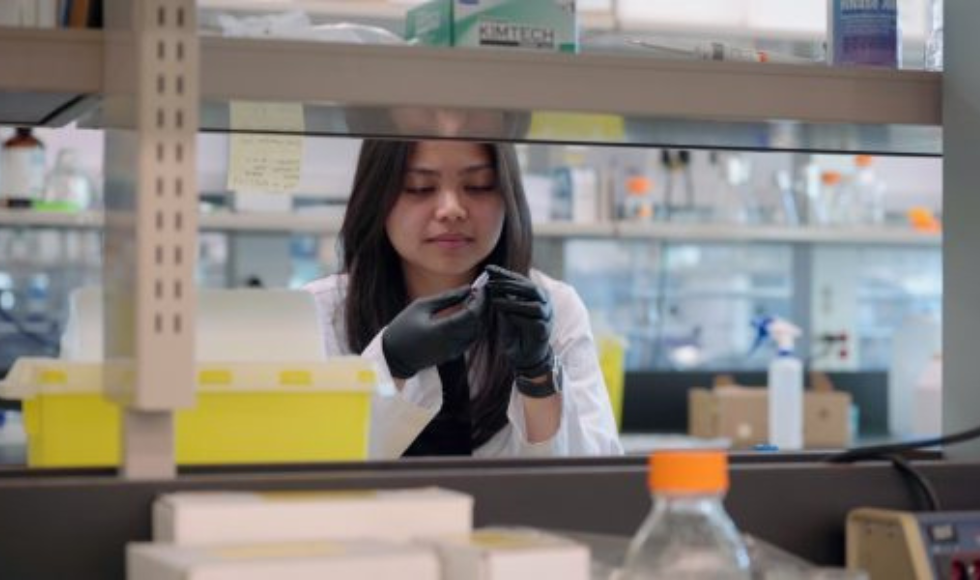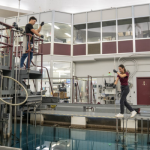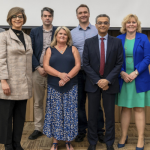June 12, 2024
McMaster ranks 30th in the world in Times Higher Education University Impact Rankings
McMaster has ranked 30th in the world in this year’s Times Higher Education University Impact Rankings, an improvement of three spots from last year.
The impact rankings are an important international benchmark for more than 1,900 universities around the world working toward the United Nations Sustainable Development Goals (SDGs), a collection of 17 goals that address global challenges like poverty, climate change and peace and justice.
“McMaster is proud to be a global leader in this international ranking, particularly because our community is so committed to advancing health and well-being for all,” says McMaster’s President David Farrar. “This is a wonderful recognition of the important ways our faculty, staff and students are working every day to create more equitable and sustainable communities here and beyond our campus borders.”
This year, McMaster ranked in the top 50 in six of the SDGs:
- 7th in the world: SDG 6: Clean Water & Sanitation
- 15th in the world: SDG 3: Good Health & Well-Being
- 27th in the world: SDG 17: Partnerships for the Goals
- 28th in the world: SDG 1: No Poverty
- 35th in the world: SDG 10: Reduced Inequalities
- 45th in the world: SDG 12: Responsible Consumption & Production
The United Nations introduced the SDGs in 2015 as a challenge to governments, universities, international organizations and the private sector to come together to build a more sustainable, equitable world.
McMaster’s researchers, students and staff work together across disciplines and partner with local and global communities to tackle world hunger, improve health and education, and create a brighter world for all.
Below, you will find a collection of stories highlighting how our researchers are directly impacting our local and global communities.
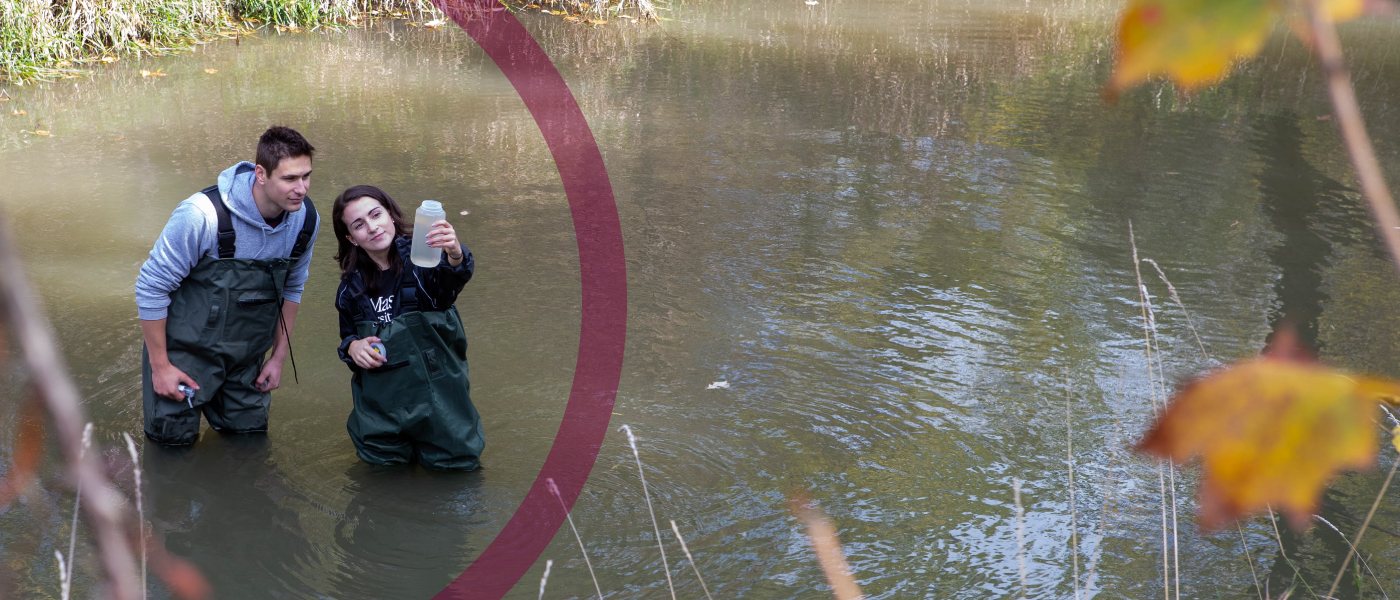
7th in the world for
SDG 6: Clean Water and Sanitation
 “Wetlands are unique biodiversity hotspots. It’s where land meets water and everything from fish to birds coexist in such a relatively small space.”
“Wetlands are unique biodiversity hotspots. It’s where land meets water and everything from fish to birds coexist in such a relatively small space.”
-Danielle Montocchio, PhD student
Protecting wetland ecosystems
McMaster PhD student Danielle Montocchio went on family camping trips around Georgian Bay while growing up and studied Group of Seven landscapes in art classes. In high school, Montocchio realized she wanted to be an environmental scientist. Once she learned about wetlands, it was clear what she wanted to study and protect.
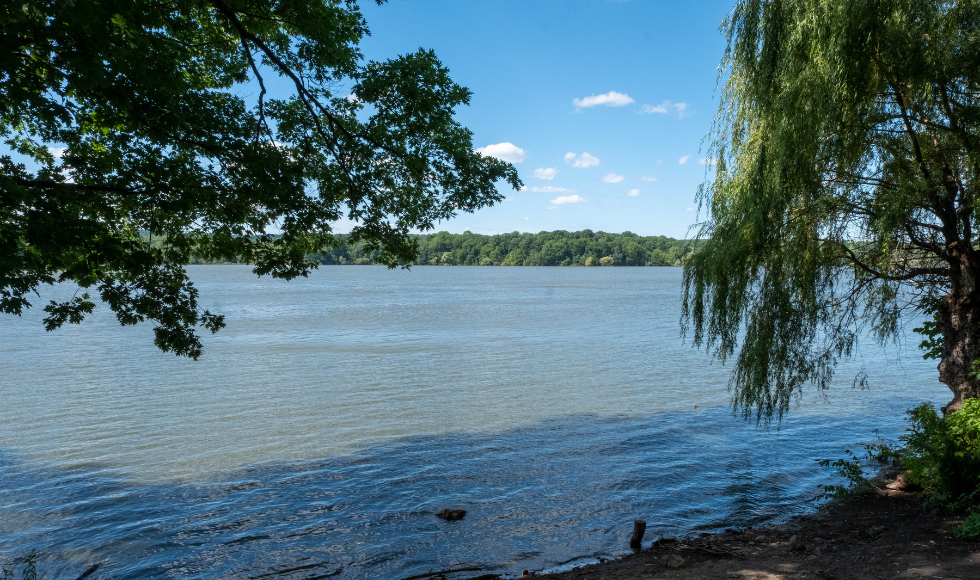
 Tackling water insecurity together
Tackling water insecurity together
A new global centre focused on climate change, led by McMaster researcher Gail Krantzberg and Drew Gronewold from the University of Michigan, promises to address complex water crises that span international boundaries and jurisdictions.
Wildfires burn an average of 2.5 million hectares of Canadian forests every year, according to Natural Resources Canada. After a fire, ash and other organic materials end up in source water, threatening the drinking water of nearby communities. That’s where McMaster researcher Sarah Dickson-Anderson’s work comes in.
Hamilton’s shoreline served as the backdrop for a recent cycling event where students, staff, faculty and community members promoted the importance of water research and sustainability practices.
Click here to learn more about McMaster’s commitment to water research and sustainability.

15th in the world for
SDG 3: Good Health & Well-Being
 “Using AI, we can rapidly explore vast regions of chemical space, significantly increasing the chances of discovering fundamentally new antibacterial molecules.”
“Using AI, we can rapidly explore vast regions of chemical space, significantly increasing the chances of discovering fundamentally new antibacterial molecules.”
-Jon Stokes, Assistant Professor, Biochemistry & Biomedical Sciences
Using AI to fight drug-resistant superbugs
Scientists at McMaster University and the Massachusetts Institute of Technology used artificial intelligence to discover a new antibiotic which could be used to fight a deadly, drug-resistant pathogen that strikes vulnerable hospital patients. The process they used could also speed the discovery of other antibiotics to treat many other challenging bacteria.
The sport of orienteering, which simultaneously combines exercise with challenging navigation, may be better for the brain than exercise alone, according to new research from kinesiologists at McMaster University. In fact, the more vigorous the orienteering, the greater the benefits, which could be used to fight cognitive decline, dementia and Alzheimer’s.
A group of researchers is calling on colleagues around the world to join them in what they call “pathogen prospecting” by tracking down archival specimens of mosquitoes in museums and other collections to examine them for pathogens that would have infected people with malaria. This can help scientists study how the often-deadly and still prevalent disease moved through human populations — and how it continues to move today.
Although tuberculosis (TB) is classified as a curable and preventable disease, it remains a major global health concern. Researchers at McMaster University have been studying TB for decades. Their work, based largely out of the Michael G. DeGroote Institute for Infectious Disease Research (IIDR), has advanced the global understanding of TB and pushed forward next-generation designs for TB immunization strategies.
Click here to learn more about McMaster’s mission to create a healthier world for all.
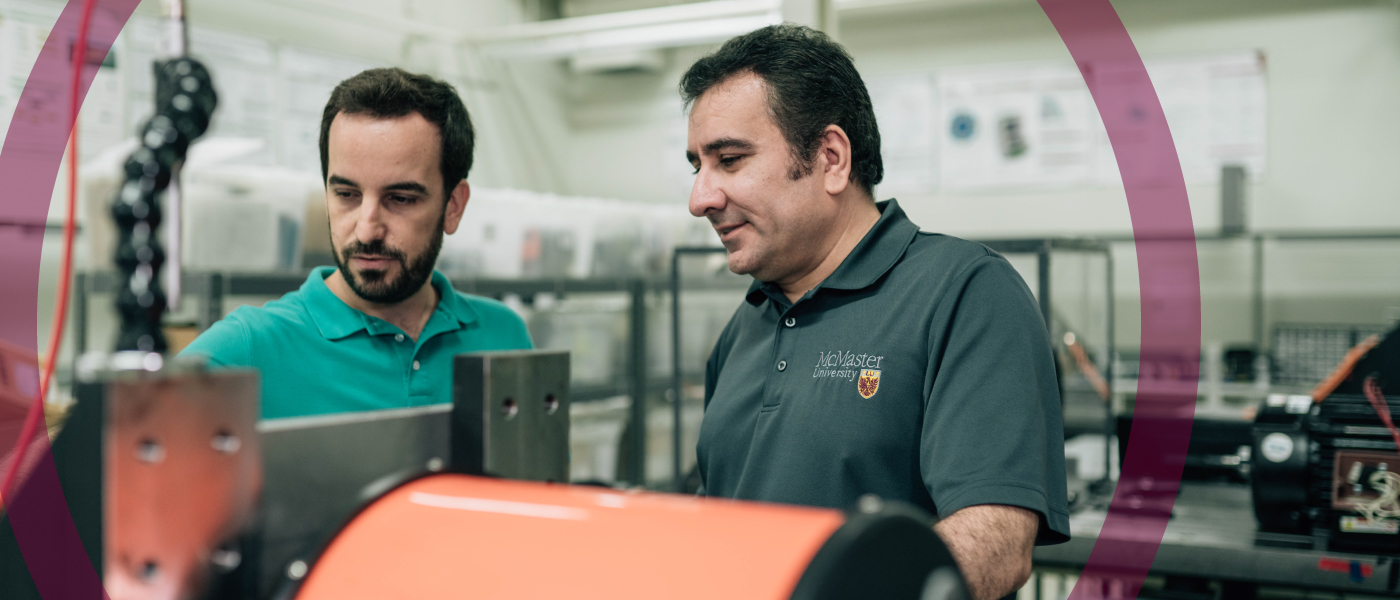
27th in the world for
SDG 17: Partnerships for the Goals
 “The COVID-19 pandemic showed us all why pandemic readiness is so important. This new funding will ensure that we have the platforms in place — right here in Canada — to enable the development of novel therapeutics, vaccines, and technologies that will allow us to more effectively prevent and respond to future infectious disease threats.”
“The COVID-19 pandemic showed us all why pandemic readiness is so important. This new funding will ensure that we have the platforms in place — right here in Canada — to enable the development of novel therapeutics, vaccines, and technologies that will allow us to more effectively prevent and respond to future infectious disease threats.”
-Matthew Miller, scientific co-lead of the Canadian Pandemic Preparedness Hub and executive director of McMaster’s Global Nexus.
Teaming up to fight pandemics
The Canadian Pandemic Preparedness Hub (CP2H), co-led by McMaster University and the University of Ottawa, has received more than $115 million in research and infrastructure funding. The investment in CP2H will modernize and future-proof biomanufacturing facilities based at McMaster and the Ottawa Hospital and expand the biomanufacturing footprint at both sites.
McMaster University and King’s College London’s School of Biomedical Engineering and Imaging Sciences (BMEIS) have formed a partnership to advance nuclear medicine research and education. The two world-leading nuclear research institutions will work together to produce 94mTc — a radioisotope that can be used in PET scans of tissue and organs, to help diagnose health challenges like cancer and heart disease.
McMaster and the University of Liverpool have partnered to advance research and innovation at both institutions. This includes health research across the life stages — from pediatrics to older adults — and research and development in sustainability.
In partnership with the World Health Organization and Harvard University, McMaster researcher Marisa Young and the Centre for Advanced Research on Mental Health and Society are working to better understand the types of help-seeking behaviours students engage in, with the hopes that this research could shape the services that higher education institutions provide.
Click here to learn more about McMaster’s global partnerships.
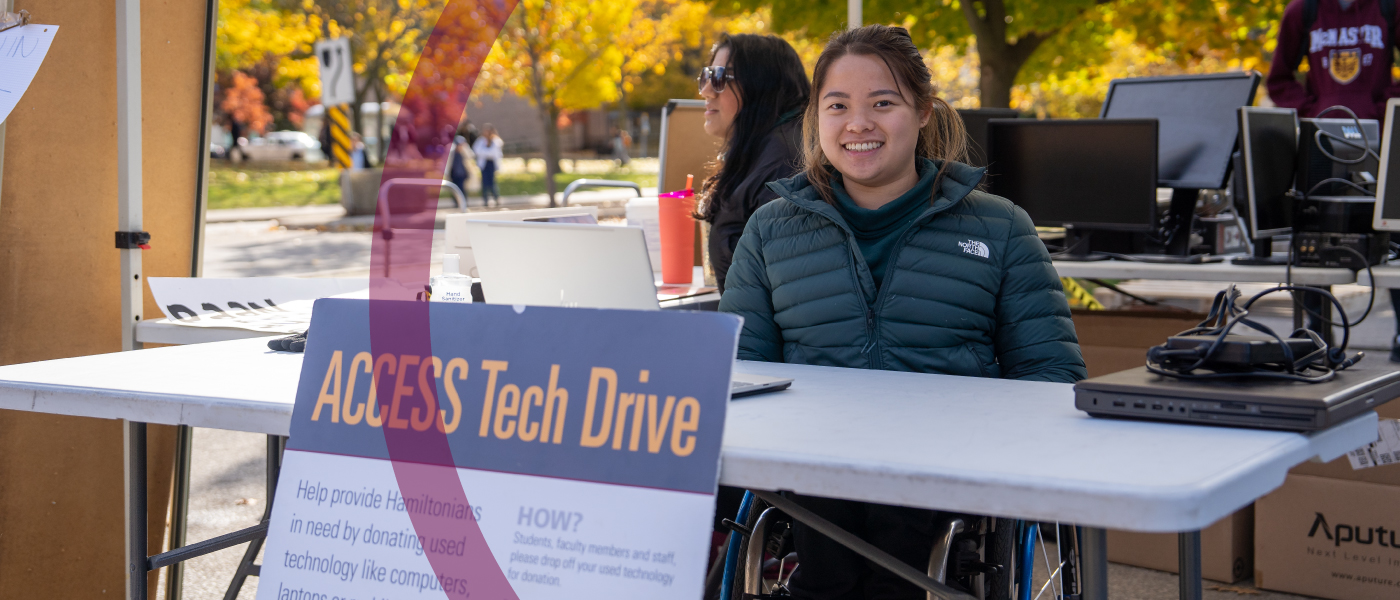
In this year’s Times Higher Education Impact Rankings, McMaster placed 30th overall, and performed especially well in specific rankings in the following SDGs:
- SDG 1 (No Poverty): 28th globally
- SDG 2 (No Hunger): 76th globally
- SDG 3 (Good Health & Well-Being): 15th globally
- SDG 6 (Clean Water & Sanitation): 7th globally
- SDG 8 (Decent Work & Economic Growth): 68th globally
- SDG 9 (Industry, Innovation & Infrastructure): 53rd globally
- SDG 10 (Reduced Inequalities): 35th globally
- SDG 11 (Sustainable Cities & Communities): 69th globally
- SDG 12 (Responsible Consumption & Production): 45th globally
- SDG 16 (Peace, Justice & Strong Institutions): 57th globally
- SDG 17 (Partnerships for the Goals): 27th globally
Click here to learn more about the Times Higher Education University Impact Rankings



